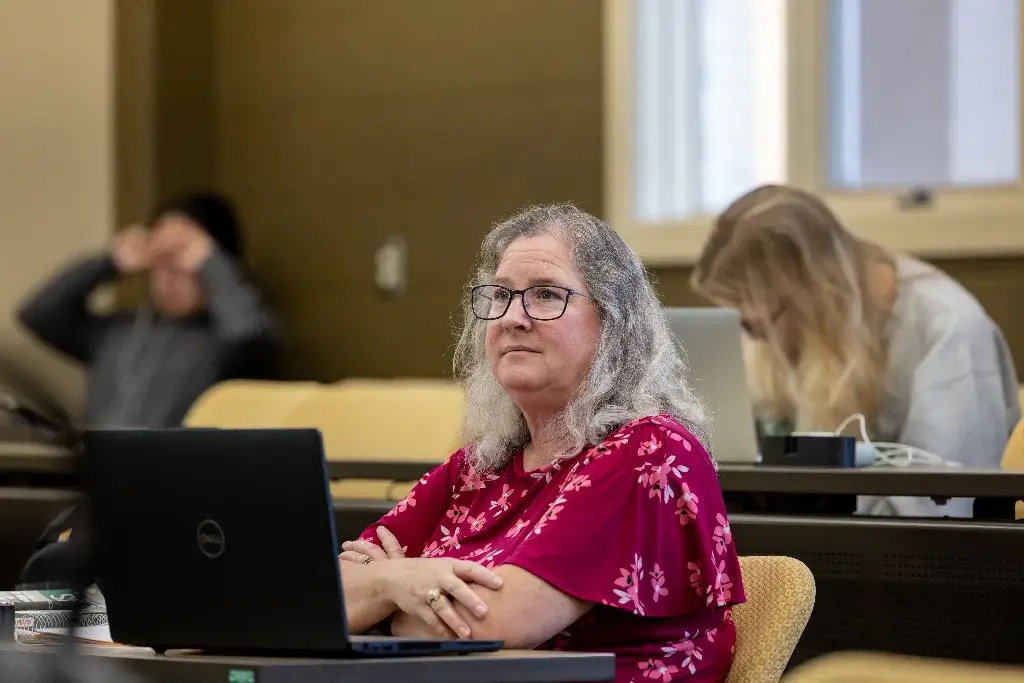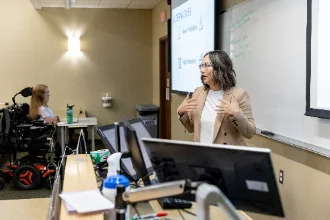

When people think of the Secret Service, they often picture highly trained agents in dark suits protecting the President from imminent danger.
While this image is accurate, it only scratches the surface of these agents' work. The Secret Service is integral in safeguarding some of the most influential individuals who shape the nation's governance and security.
For those interested in pursuing a career that combines investigative skills, protection, and a commitment to national security, the following guide explains how to become a Secret Service Agent. Read on to discover the qualifications, training, and application process involved in joining this elite team.
A Secret Service Special Agent is a highly trained law enforcement professional tasked with protecting national leaders and safeguarding the nation's financial infrastructure and payment systems. These agents play a crucial role in ensuring the safety and security of the President, Vice President, their families, visiting foreign dignitaries, and events of national significance. In addition to their protective duties, Special Agents also conduct complex investigations into financial crimes, including counterfeiting, credit card fraud, and cybercrimes.
Secret Service Special Agents must have:
According to the U.S. Secret Service, to be eligible for a Special Agent position with them, applicants must meet the following criteria:

The Secret Service also requires applicants to meet specific educational and experience qualifications, which vary depending on the grade level they are applying for. These requirements ensure that candidates have the necessary academic background and relevant work experience to perform effectively as a Special Agent.
To qualify for the GL-07 level, applicants must have a bachelor's degree from an accredited college or university. Degrees in Criminal Justice (B.S.), Law Enforcement (B.S.), Criminology (B.A.), Forensic Science (B.S.), or Political Science (B.A.) provide a solid foundation in understanding the legal system and investigative techniques. Additionally, degrees in Finance (B.B.A.), Accounting (B.Acc.), or Business Management (B.B.A.) are valuable for investigating financial crimes such as counterfeiting and fraud, whereas a bachelor's in Psychology and Sociology (B.A.) degrees offer insights into criminal behavior and effective communication skills. Overall, any degree that develops analytical thinking, problem-solving skills, and an understanding of the law can be relevant for aspiring Secret Service Special Agents.
They must complete the degree with superior academic achievement defined as:
No specific work experience is required if the educational criteria are met. If not, applicants need at least one year of specialized experience in investigative methods, protective methods, and law enforcement techniques that equip them with the necessary skills to fulfill the position's duties effectively.
For the GL-09 level, applicants must possess one of the following:
Alternatively, a combination of education and experience can be considered.
To qualify for the GS-11 level, applicants must possess one of the following:
Special Agents with the Secret Service must meet stringent physical and medical requirements to ensure they can perform the demanding duties of the role. These secret service agent requirements are designed to assess the applicants' overall health, fitness, and physical capabilities, ensuring they can handle the physical challenges associated with both protective and investigative assignments.
Applicants must pass a rigorous physical fitness test that assesses their strength, endurance, and aerobic capacity. This test includes a series of exercises designed to measure the applicant's physical abilities:
Applicants must have uncorrected visual acuity of no worse than 20/100 binocular, correctable to 20/20 in each eye. Acceptable eye surgeries include Lasik, ALK, RK, and PRK, with specific recovery periods before eligibility.
They must also have hearing loss not exceeding 25 decibels in either ear in the 500, 1,000, and 2,000 Hz ranges.

Applicants must be in excellent health and physical condition to handle the demanding duties of a Special Agent. They must be able to perform a range of physically challenging tasks, and failure to maintain these standards can result in dismissal from training or duty.
The application process for becoming a Special Agent with the Secret Service is multi-staged, designed to identify and select only the most capable and qualified candidates. The process is divided into two main phases, each with specific steps that applicants must successfully complete to advance to the next stage.
Phase I involves the initial stages of the application process, focusing on evaluating the basic qualifications and skills of the candidates. This phase ensures applicants meet the minimum eligibility requirements and possess the foundational skills necessary for the role. The exact steps of this phase encompass:
Phase II involves more in-depth evaluations and verifications, ensuring that candidates are fully vetted and meet all necessary standards before receiving a final job offer. So, upon receiving their conditional job offer, candidates must also undergo the following steps:
Finally, after all these steps, the employee reports to training.
To become a Secret Service agent, candidates must meet strict standards. Disqualifying factors include:
While the Secret Service's requirements and application process may seem extensive, it's clear why such rigorous standards are necessary. The critical nature of their work demands that all team members are highly skilled and prepared for the job. Education plays a crucial role in meeting these standards, providing the foundational knowledge required for many aspects of the role.
At UND, we offer numerous graduate and undergraduate programs that align with the educational needs of this career path. So, if you're aiming to join this elite group, UND can help you tick that essential requirement off your list. Remember, in the world of secret agents, excellence isn't just an option—it's a mission.
Yes, the selection process is highly competitive and rigorous, requiring candidates to pass multiple stages of testing, interviews, and background checks.
The process typically takes six to nine months, but it can extend up to 18 months or more, depending on the length of the background investigation.
Candidates must wait three months before reapplying after failing the Special Agent Entrance Exam.
Yes, applicants can apply for both positions simultaneously.
It is crucial to be completely honest during the application process, as the Secret Service conducts thorough background checks and places a significant emphasis on integrity. Any attempt to conceal or misrepresent past behavior, such as drug use, will disqualify you from being considered for the position.

Explore crime and justice with an on campus or online Criminal Justice degree from UND. Our Criminal Justice bachelor's degree is affordable and accredited.
EXPLORE UND'S CRIMINAL JUSTICE PROGRAM
Office of University AdmissionsGorecki Center
3501 University Ave Stop 8357
Grand Forks, ND 58202-8357
P 701.777.3000 (711 for Relay)
admissions@UND.edu
By clicking any link on this page you are giving your consent for us to set cookies, Privacy Information.